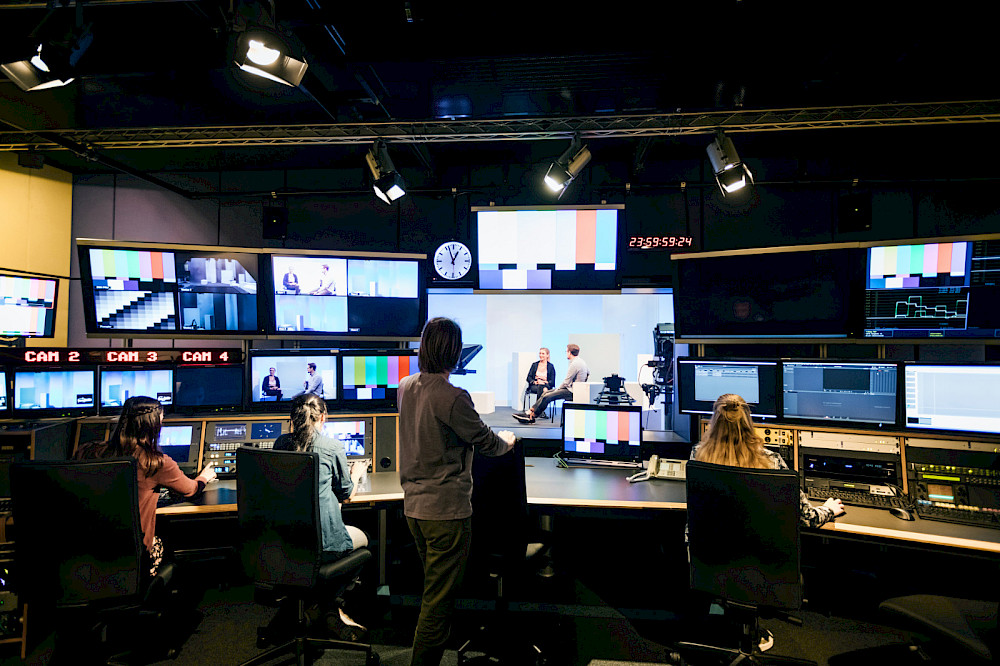Tate Daniels, a visiting journalism student from Arizona State University, summarises the key findings of the Reuters Digital News Report Ireland 2024.
The 2024 installment of the Digital News Report Ireland includes up-to-date statistics for various topics in the Irish media landscape. This year’s installment differs from previous installments due to a heightened focus on generative artificial intelligence in the media today. The report was also conducted during street protests, the ongoing conflicts in Gaza and Ukraine, and the scandal surrounding RTÉ, Ireland’s public broadcaster. Interestingly, even amid RTÉ’s scandal, they are still the most used traditional source of news in Ireland, with 51 percent of people saying they use either RTÉ TV News or RTÉ Radio News three or more times a week. The main news source for the Irish people remained about the same as last year, with 31 percent using TV to get their news, 33 percent going to online sources, and 21 percent using social media. Printed newspapers did, however, drop two percent from last year, printed newspapers now account for only three percent of the Irish people’s main news source.
This year’s installment also shows that not only are 44 percent of Irish people actively avoiding the news, 10 percent more than in 2023, but they are also seven percent more concerned in 2024 than in 2023 about what is real and what is fake on the internet at 71 percent in 2024. Among the topics that Irish people reported seeing misleading or false information on within the last week are the Israel-Palestine conflict at 38 percent of the Irish population, immigration at 37 percent, COVID-19 at 33 percent, the war in Ukraine at 29 percent, and politics as the fifth most common with 28 percent of Irish people reported seeing misleading or false information in the last week. Irish people, however, still trust the news more than the United States and the rest of Europe, with 46 percent of Irish people saying they usually trust the news compared to just 32 percent in the United States and 39 percent in the rest of Europe.
The report also unearthed how comfortable Irish people are with the use of generative artificial intelligence in news production. 56 percent of Irish people said they were somewhat or very uncomfortable with News production being mostly done by artificial intelligence with some human oversight. Only 15 percent of Irish people said they were somewhat or very comfortable with news mostly being generated by generative artificial intelligence. 37 percent said they were somewhat or very comfortable with a human journalist doing most of the work with some help from generative artificial intelligence. Interestingly, the topics Irish people are less comfortable with artificial intelligence being used in news production include politics at 54 percent, crime at 53 percent, local news at 49 percent, and business at 45 percent. Only 36 percent of Irish people are uncomfortable with artificial intelligence being used in arts and culture articles. Only 34 percent of Irish people feel uncomfortable with generative artificial intelligence being used in sports and celebrity/entertainment news
Publications
Type: Reports
Published in:
Authors:
Year: 2024
URL: Resource
Related Projects

The Reuters Institute Digital News Report is the world’s largest international comparative survey of the major trends in digital news consumption. It is widely used by industry, analysts, and researchers across the world. Since 2015, Coimisiún na Meán (formerly Broadcasting Authority of Ireland) has funded FuJo to undertake the analysis for the Irish report. Annual reports are available for: 2023, 2022, 2021, 2020, 2019, 20128, 2017, 2016, and 2015....


